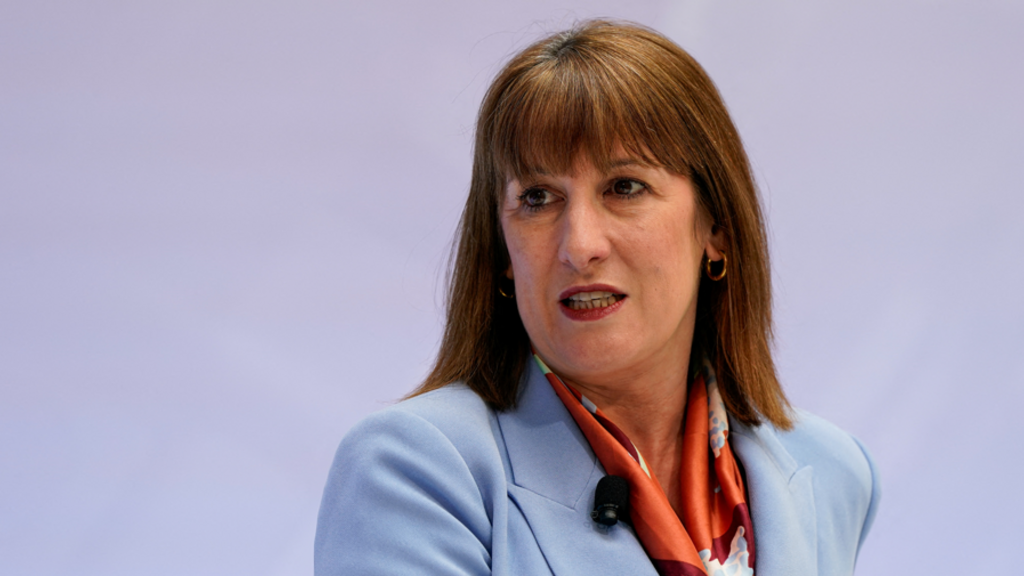Chancellor Rachel Reeves’ ambitious plan to achieve substantial welfare cost reductions through reforms has encountered significant headwinds.
Following considerable government concessions regarding the benefits bill, the projected £5 billion in savings by 2029-30 has been notably diminished.
This development, occurring shortly after the reversal on the Winter Fuel Allowance, has substantially eroded the government’s £10 billion fiscal buffer, intended to ensure the stability of public finances.
As the Autumn Budget approaches, what options remain available to Reeves to address this evolving financial landscape? There are five key choices to consider.
One possibility is for the government to adopt a wait-and-see approach, contingent on the UK economy exceeding expectations in growth and a subsequent decrease in debt interest costs.
However, this strategy carries inherent risks.
The impetus behind Reeves’ initial announcement of welfare reforms in the Spring Statement was primarily driven by the fact that escalating debt interest payments and diminished tax revenues had already surpassed and negated the existing £10 billion buffer.
Furthermore, the Office for Budget Responsibility (OBR), the independent body responsible for assessing government spending plans and performance, has revised its forecast for UK economic growth this year downward to 1%.
At that juncture, considerable uncertainty prevailed regarding the potential repercussions of the US tariffs imposed by Donald Trump.
Since then, the UK has emerged as the first nation to secure a trade agreement with the Trump administration.
While this agreement has significantly reduced tariffs in sectors such as automobiles, a 10% tax remains applicable in certain areas, and a conclusive agreement concerning UK steel shipments to the US remains pending.
The recent Spending Review, announced by Reeves, presents another avenue.
The National Health Service (NHS) emerged as a primary beneficiary, receiving an additional £30 billion per year, alongside defense.
However, other departments experienced less favorable outcomes, with some facing budget reductions.
Revisiting these departments to request further savings immediately following the allocation of their budgets would not only disrupt operations but also project an image of a government struggling to restore credibility.
A significant question mark now hangs over the government’s capacity to eliminate the two-child benefit cap.
Sir Keir Starmer indicated last month that he would “look at” abolishing the cap, which would entail a cost of £3.5 billion.
This proposition is likely to face resistance from Reeves.
Upon assuming the chancellorship, Reeves established two fundamental financial rules. The first mandates that day-to-day expenditures must be financed through government revenue, primarily derived from taxes, with borrowing reserved exclusively for investment purposes.
The second rule stipulates that debt, as a proportion of national income, must demonstrate a decline by the conclusion of a five-year period.
Reeves has consistently emphasized the “non-negotiable” nature of these rules.
These principles are designed to project an image of financial stability for the UK, particularly in light of the economic uncertainty generated by former Prime Minister Liz Truss’s mini-budget in 2022.
While Reeves technically possesses the authority to amend these self-imposed rules, such a decision carries the risk of destabilizing markets, potentially leading to an increase in debt interest payments.
The OBR produces two assessments of the UK’s economic and financial outlook annually, coinciding with the Autumn Budget and the Spring Statement.
The International Monetary Fund (IMF) has proposed limiting the OBR report to a single assessment during the Budget.
The IMF suggests that a single assessment would “promote further policy stability” and potentially alleviate pressure on the government’s buffer figure, often referred to as “headroom.”
It notes that even “small revisions to the economic outlook can erode the headroom within the rules, which is the subject of intense market and media scrutiny.”
Prior to the mini-Budget, Truss and her Chancellor Kwasi Kwarteng disregarded the OBR when announcing £45 billion in unfunded tax cuts, a move that unsettled financial markets.
Subsequently, Reeves enacted legislation requiring any government announcement involving substantial changes to taxes or spending to undergo assessment by the OBR.
To limit the report to a single annual release, Reeves could opt to restrict the scope of the Spring Statement to merely providing an update on the state of the economy.
The Labour Party has pledged not to raise taxes for “working people,” explicitly ruling out increases to employee National Insurance Contributions, Income Tax, and VAT.
On Wednesday, cabinet minister Pat McFadden acknowledged the “financial consequences” associated with the decision to moderate planned welfare cuts, while affirming the government’s commitment to its tax pledge.
This leaves Reeves with limited options to replenish government coffers.
One possibility involves extending the freeze on tax thresholds, a policy initially introduced under the Conservative government and scheduled to expire in April 2028.
Extending this freeze until the end of the parliamentary term could generate nearly £7 billion in revenue.
While this effectively constitutes a tax increase on working individuals, as wage increases may push them into higher tax brackets, it could provide a significant solution for a government facing pressing financial needs.
Sign up for our Politics Essential newsletter to keep up with the inner workings of Westminster and beyond.
The PM insists Rachel Reeves will stay in her job after markets react to her tearful Commons appearance.
The incumbent North Tyneside Labour Mayor says Reform is not a “serious threat” despite the win.
The first minister says the UK government has “preyed” on vulnerable claimants after a dramatic Commons U-turn.
Labour has been failing its basic mission to look like a capable government. And the PM’s authority has been given a kick. But insiders have hope for the year ahead
Pat McFadden says there will be “financial consequences” to the decision to water down planned welfare cuts.

